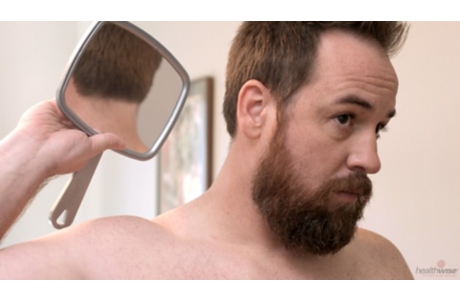Lifestyle Changes That May Help Prevent Cancer
Make an Appointment
Our team is here to help you make an appointment with the specialists that you need.
Lifestyle Changes That May Help Prevent Cancer
Overview
Experts believe that one-third to one-half of all cancers can be prevented. That's because certain daily habits can make us more likely to get cancer. Changing these habits may help prevent cancer. For example, it may help to quit smoking, stay active, stay at a healthy weight, and get regular checkups and screenings.
Your doctor may recommend other things based on your personal health history. For example, taking aspirin to prevent cancer may be a good idea for some people. But aspirin can have risks too. Talk to your doctor about what cancer-prevention steps are best for you.
Things you can do
Here are some steps you can take that may help prevent cancer.
- Quit smoking.
When you quit smoking, you lower your risk of many types of cancer. These include cancers of the lung, bladder, kidneys, pancreas, cervix, mouth, esophagus, and throat.
- Make healthy food choices.
- Eat a variety of vegetables, fruits, beans and other legumes, fish, poultry, and whole grains.
- Eat less red meat (such as beef, lamb, and pork).
- Eat less processed meat (like bacon, hot dogs, sausage, and some deli meats).
- Eat less food made from refined grains.
- Limit sweets.
- Stay at a healthy weight.
Being very overweight increases the risk of some forms of cancer. People whose extra fat is in the waist area may be at higher risk than people whose extra fat is in their hips or thighs.
- Stay active.
Being active every day may prevent a number of cancers. And regular activity can help you get to and stay at a healthy weight.
Being active and getting enough sleep may work together to lower cancer risk even more than activity alone, especially for women.
- Protect your skin.
Most skin cancer is caused by too much sun. To protect yourself from damaging UV rays:
- Seek shade from 10 a.m. to 4 p.m.
- Cover up outdoors with a wide-brimmed hat and tightly-woven clothing.
- Apply broad-spectrum sunscreen on any exposed skin, even when it's cloudy. Use SPF 30 or higher.
- Wear UV-blocking sunglasses.
- Avoid tanning booths and sunlamps.
- Be wise with alcohol.
Drinking alcohol may increase your risk of some types of cancer. Any amount of alcohol may increase that risk. If you drink alcohol, try to limit the amount you drink.
- Practice safer sex.
Safer sex includes using condoms and talking to every potential sex partner about their sexual history. Practicing safer sex helps prevent HPV, a sexually transmitted infection that can cause cervical cancer.
- Get regular checkups and screenings.
Your doctor can schedule regular screenings for various types of cancer, such as mammograms for breast cancer and stool tests for colon cancer. Most screenings and checkups are to find cancer early, when it's easier to treat and may even be curable.
- Consider vaccinations.
Females ages 9 to 26 can get the HPV vaccine to protect against the virus that can cause cervical cancer. Males ages 9 through 26 may also get the HPV vaccine, which may prevent anal cancer and oral cancer. If you are age 27 to 45 and have not been vaccinated for HPV, ask your doctor if getting the vaccine is right for you.
- Avoid toxins at work and at home.
Stay away from harmful chemicals and other things that can increase your chances of getting cancer. These things include asbestos, benzene, radon, and polluted drinking water. Take care when you use cleaning products, paints, solvents, and pesticides.
Credits
Current as of: October 25, 2024
Author: Ignite Healthwise, LLC Staff
Clinical Review Board
All Healthwise education is reviewed by a team that includes physicians, nurses, advanced practitioners, registered dieticians, and other healthcare professionals.
Current as of: October 25, 2024
Author: Ignite Healthwise, LLC Staff
Clinical Review Board
All Healthwise education is reviewed by a team that includes physicians, nurses, advanced practitioners, registered dieticians, and other healthcare professionals.
This information does not replace the advice of a doctor. Ignite Healthwise, LLC, disclaims any warranty or liability for your use of this information. Your use of this information means that you agree to the Terms of Use. Learn how we develop our content.
To learn more about Ignite Healthwise, LLC, visit webmdignite.com.
© 2024-2025 Ignite Healthwise, LLC.
This information does not replace the advice of a doctor. Ignite Healthwise, LLC, disclaims any warranty or liability for your use of this information. Your use of this information means that you agree to the Terms of Use. Learn how we develop our content.



